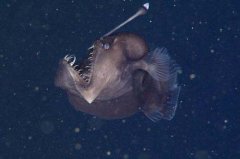形容词的最高级是什么?
绝大多数形容词有三种形式,原级,比较级和最高级, 以表示形容词说明的性质在程度上的不同。
形容词的原级: 形容词的原级形式就是词典中出现的形容词的原形。 例如:
poor tall great glad bad
形容词的比较级和最高级: 形容词的比较级和最高级形式是在形容词的原级形式的基础上变化的。 分为规则变化和不规则变化。
规则变化如下:
1) 单音节形容词的比较级和最高级形式是在词尾加 -er 和 -est 构成。
great (原级) greater(比较级) greatest(最高级)
2) 以 -e 结尾的单音节形容词的比较级和最高级是在词尾加 -r 和 -st 构成。
wide (原级) wider (比较级) widest (最高级)
3)少数以-y, -er, -ow, -ble结尾的双音节形容词的比较级和最高级是在词尾加 -er 和 -est 构成。
clever(原级) cleverer(比较级) cleverest(最高级)
4) 以 -y 结尾,但 -y 前是辅音字母的形容词的比较级和最高级是把 -y 去掉,加上 -ier 和-est 构成.
happy (原形) happier (比较级) happiest (最高级)
5) 以一个辅音字母结尾其前面的元音字母发短元音的形容词的比较级和最高级是双写该辅音字母然后再加 -er和-est。
big (原级) bigger (比较级) biggest (最高级)
6) 双音节和多音节形容词的比较级和最高级需用more 和 most 加在形容词前面来构成。
beautiful (原级)? difficult (原级)
more beautiful (比较级) more difficult (比较级)
most beautiful (最高级) most difficult (最高级)
常用的不规则变化的形容词的比较级和最高级:
原级 比较级 最高级
good better best
many more most
much more most
bad worse worst
little less least
ill worse worst
far farther(further) farthest(furthest)
形容词前如加 less 和 lest 则表示"较不"和"最不"
important 重要
less important 较不重要
lest important 最不重要
形容词比较级的用法:
形容词的比较级用于两个人或事物的比较,其结构形式如下:
主语+谓语(系动词)+ 形容词比较级+than+ 对比成分。 也就是, 含有形容词比较级的主句+than+从句。注意从句常常省去意义上和主句相同的部分, 而只剩下对比的成分。
Our teacher is taller than we are.
我们老师的个子比我们的高。
It is warmer today than it was yesterday.
今天的天气比昨天暖和。
This picture is more beautiful than that one.
这张照片比那张照片漂亮。
This meeting is less important than that one.
这次会议不如那次会议重要。
The sun is much bigger than the moon.
太阳比月亮大得多。
形容词最高级的用法:
形容词最高级用于两个以上的人和物进行比较, 其结构形式为:
主语+谓语(系动词)+the+形容词最高级+名词+表示范围的短语或从句。
She is the best student in her class.
她是班上最好的学生。
Shanghai is one of the biggest cities in China.
上海是中国最大城市之一。
This is the biggest apple I have ever met.
这是我见到的最大的苹果。
Tom is the tallest boy in his basketball team.
汤姆是他们篮球队中个子最高的孩子。
有关形容词的几个特殊用法:
most 同形容词连用而不用 the,表示 "极,很,非常, 十分"。
It's most dangerous to be here.
在这儿太危险。
I cannot do it, it's most difficult.
我干不了这件事,太难了。
"The+形容词比较级..., the+形容词比较级..."表示 " 越... 就越..."。
The more you study, the more you know.
你学的越多, 就知道的越多。
The more I have, the more I want.
我越有就越想要有。
The more, the better.
越多越好。
" 形容词比较级 + and + 形容词比较级 ", 表示 " 越来越... "。
It's getting hotter and hotter.
天气越来越热了.
It's pity he is getting poorer and poorer.
真可怜他越来越穷了。
The computer is cheaper and cheaper.
计算机越来越便宜。
The more and more people focus on the meeting next year.
越来越多的人关注明年的会议。
主语+谓语(系动词)+as+形容词原形+as+从句。表示两者对比相同。
This box is as big as mine.
这个盒子和我的一样大。
This coat is as cheap as that one.
这件衣服同那件衣服一样便宜。
I study English as hard as my brother.
我同我兄弟一样学习努力。
the + 形容词 表示某种人。
He always helps the poor.
他经常帮助穷人。
I like to have a talk with the young.
我喜欢同年轻人谈话。
The rich sometimes complain their empty life.
富人有时抱怨他们空虚的生活。
The police led the old man across the street.
警察领老人横过马路。
修饰最高级的词有哪些
问题一:形容词最高级前可加哪些修饰词 部分双音节形容词、多音节形容词的比较级在词前加more.例如:
ethletic(more ethletic) serious (more serious) unhapply (more unhapply)
outgoing (more outgoing) popular (more popular)
最高级与比较级的变化规则一致,不过要加most.例如:
ethletic(most ethletic) serious (most serious) unhapply (most unhapply)
outgoing (most outgoing) popular (most popular)
一般来说就只能加副词,然后既然是最高级,就不能用程度副词。其他情况下,按照内容加副词就可以了。
问题二:修饰最高级的词有哪些 1、形容词最高级前通常必须用定冠词 the,形容词most前面没有the,不表示最高级的含义,只表示非常.
2、by far, far, much, mostly, almost,This hat is nearly / almost the biggest,这些词课修饰最高级.
1)very可修饰最高级,但位置与much不同.
This is the very best./This is much the best.
2)序数词通常只修饰最高级.
Africa is the second largest continent.
3、否定词语+比较级,否定词语+ so… as结构表示最高级含义.
问题三:形容词的最高级前有什么时,不需要定冠词the 一般说来,形容词最高级前面必须加定冠词the。例如:
1. Tom is the tallest student in his class,汤姆是他班上个子最高的学生。
2.This is the most interesting book l have ever read.这是我读过的最有趣的一本书。
3.Gorky was the greatest writer Of his age.高尔基是他那个年代最伟大的作家。
但在有些情况下,形容词最高级前不用定冠词the,现将这些情况分述如下:
一、当形容词最高级在句中作表语时没有跟其他事物比较
1.形容词最高级在不用作名词修饰语,且句子的主语无一定范围或无同类事物作比较而只用来与本身作比较时,前面不加定冠词。例如:
a. The river is deepest at this point.河流此处最深。
b.Vegetables are best when they are fresh.蔬菜新鲜时最好。
2. 形容词最高级前有物主代词、指示代词或名词所有格等限定词修饰时,不再加定冠词the。例如:
a.Monday is our busiest day. 星期一是我们最忙的一天。
b.Tom’s greatest wish is to be an engineer.汤姆的最大愿望是成为一名工程师。
二、形容词最高级不表示“最”的意思时
1.形容词最高级用来加强语气,有“非常”、・“极其”的意思,前面可以不用定冠词the,有时可以用不定冠词a或an。例如:
a.I was in closest touch with them.我和他们接触极为密切。
b. He is a most learned main. 他是位很有学问的人。
2.表示“大多数”;“大部分”(仅限于most)时。例如:
a.I know most great men in the town.我认识这城里的大多数重要人物


